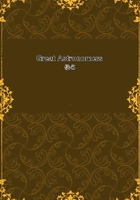
第59章 WILLIAM HERSCHEL.(5)
For uncounted ages those who watched the skies had been aware of the existence of the five old planets--Jupiter, Mercury, Saturn, Venus, and Mars. It never seems to have occurred to any of the ancient philosophers that there could be other similar objects as yet undetected over and above the well-known five. Great then was the astonishment of the scientific world when the Bath organist announced his discovery that the five planets which had been known from all antiquity must now admit the company of a sixth. And this sixth planet was, indeed, worthy on every ground to be received into the ranks of the five glorious bodies of antiquity. It was, no doubt, not so large as Saturn, it was certainly very much less than Jupiter;on the other hand, the new body was very much larger than Mercury, than Venus, or than Mars, and the earth itself seemed quite an insignificant object in comparison with this newly added member of the Solar System. In one respect, too, Herschel's new planet was a much more imposing object than any one of the older bodies; it swept around the sun in a majestic orbit, far outside that of Saturn, which had previously been regarded as the boundary of the Solar System, and its stately progress required a period of not less than eighty-one years.
King George the Third, hearing of the achievements of the Hanoverian musician, felt much interest in his discovery, and accordingly Herschel was bidden to come to Windsor, and to bring with him the famous telescope, in order to exhibit the new planet to the King, and to tell his Majesty all about it. The result of the interview was to give Herschel the opportunity for which he had so long wished, of being able to devote himself exclusively to science for the rest of his life.
[PLATE: VIEW OF THE OBSERVATORY, HERSCHEL HOUSE, SLOUGH.]
The King took so great a fancy to the astronomer that he first, as Ihave already mentioned, duly pardoned his desertion from the army, some twenty-five years previously. As a further mark of his favour the King proposed to confer on Herschel the title of his Majesty's own astronomer, to assign to him a residence near Windsor, to provide him with a salary, and to furnish such funds as might be required for the erection of great telescopes, and for the conduct of that mighty scheme of celestial observation on which Herschel was so eager to enter. Herschel's capacity for work would have been much impaired if he had been deprived of the aid of his admirable sister, and to her, therefore, the King also assigned a salary, and she was installed as Herschel's assistant in his new post.
With his usually impulsive determination, Herschel immediately cut himself free from all his musical avocations at Bath, and at once entered on the task of making and erecting the great telescopes at Windsor. There, for more than thirty years, he and his faithful sister prosecuted with unremitting ardour their nightly scrutiny of the sky. Paper after paper was sent to the Royal Society, describing the hundreds, indeed the thousands, of objects such as double stars;nebulae and clusters, which were first revealed to human gaze during those midnight vigils. To the end of his life he still continued at every possible opportunity to devote himself to that beloved pursuit in which he had such unparalleled success. No single discovery of Herschel's later years was, however, of the same momentous description as that which first brought him to fame.
[PLATE: THE 40-FOOT TELESCOPE AS IT WAS IN THE YEAR 1863, HERSCHELHOUSE, SLOUGH.]
Herschel married when considerably advanced in life and he lived to enjoy the indescribable pleasure of finding that his only son, afterwards Sir John Herschel, was treading worthily in his footsteps, and attaining renown as an astronomical observer, second only to that of his father. The elder Herschel died in 1822, and his illustrious sister Caroline then returned to Hanover, where she lived for many years to receive the respect and attention which were so justly hers. She died at a very advanced age in 1848.